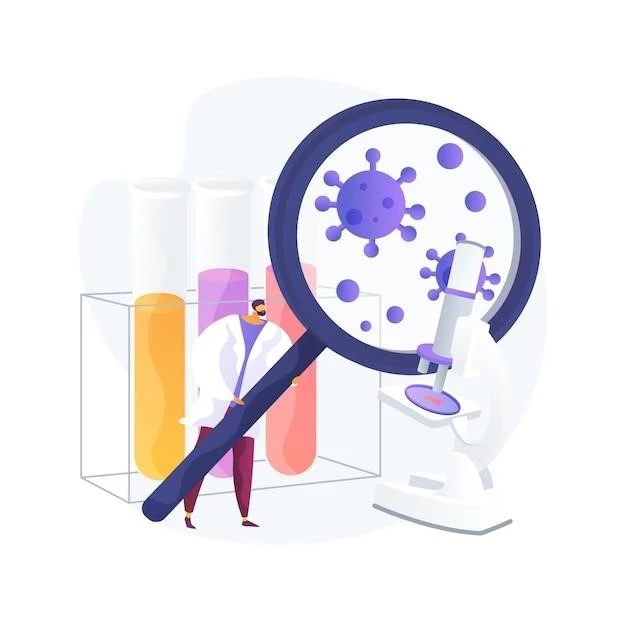Causes of Coccidioidomycosis
Coccidioidomycosis is caused by inhaling spores of the fungus Coccidioides found in soil. The fungus thrives in arid regions with dry soil‚ such as the southwestern United States and parts of Mexico and South America.
Risk factors for developing Coccidioidomycosis include living in or traveling to endemic regions‚ engaging in outdoor activities that expose you to dust‚ having a weakened immune system‚ and being pregnant‚ especially during the third trimester.
Risk Factors for Coccidioidomycosis
Reduce your risk of Coccidioidomycosis by avoiding activities that expose you to dust in endemic areas. If traveling to these regions‚ wear protective masks and clothing. Pregnant women and individuals with weakened immune systems should take extra precautions to prevent exposure.
Common Symptoms
Common symptoms of Coccidioidomycosis include fever‚ cough‚ chest pain‚ fatigue‚ muscle aches‚ and joint pain. Some individuals may also experience skin lesions‚ weight loss‚ and headaches. If you experience any of these symptoms‚ especially after visiting endemic areas‚ seek medical attention for proper diagnosis and treatment.
Diagnosis Methods
Diagnosing Coccidioidomycosis involves blood tests‚ imaging studies like chest X-rays or CT scans‚ and sometimes culturing the fungus from a tissue sample. Your healthcare provider may also perform a skin test or a sputum test to confirm the presence of the infection. If you have symptoms and have traveled to endemic areas‚ seek medical attention promptly for accurate diagnosis.
Treatment Approaches
Treatment of Coccidioidomycosis usually includes antifungal medication‚ such as fluconazole or itraconazole. In severe cases‚ amphotericin B may be necessary. It is crucial to complete the full course of treatment as prescribed by your healthcare provider to effectively eliminate the infection and prevent complications. Additionally‚ maintaining good overall health and following your healthcare provider’s advice can aid in a successful recovery process.
Protective Measures
To prevent Coccidioidomycosis‚ avoid disturbing soil in endemic areas‚ especially during windy conditions. Wear N95 masks‚ long sleeves‚ and pants when working outdoors in endemic regions. Stay indoors during dust storms and maintain good indoor ventilation. If you have a weakened immune system‚ consult with your healthcare provider about additional precautions to reduce your risk of contracting the infection.
Potential Complications
Complications of Coccidioidomycosis can include chronic pneumonia‚ lung nodules‚ skin lesions‚ and in severe cases‚ dissemination to other parts of the body‚ such as the bones‚ joints‚ or central nervous system. Prompt diagnosis and appropriate treatment are crucial to prevent complications and ensure a positive outcome. If you experience worsening symptoms or new complications‚ contact your healthcare provider immediately.
Vulnerable Groups
High-risk populations for Coccidioidomycosis include pregnant individuals‚ older adults‚ people with weakened immune systems (such as those with HIV/AIDS or undergoing immunosuppressive therapy)‚ and individuals with certain underlying medical conditions (like diabetes or lung disease). Extra precautions should be taken to avoid exposure and promptly seek medical care if symptoms arise.
Ongoing Studies and Discoveries

Researchers are actively investigating new treatment options‚ diagnostic methods‚ and potential vaccines for Coccidioidomycosis. Studies are focusing on understanding the immune response to the fungus and identifying novel antifungal agents. Stay informed about research advancements in this field to potentially benefit from emerging therapies. Discuss any new findings with your healthcare provider to explore the best options for managing and preventing Coccidioidomycosis.
Worldwide Perspective
Although Coccidioidomycosis is primarily endemic to specific regions like the southwestern United States and parts of Mexico and South America‚ global travel can lead to infections in non-endemic areas. Healthcare providers worldwide should be aware of the disease and consider it in individuals with relevant travel history. Increased awareness‚ early detection‚ and appropriate management can help prevent the spread of Coccidioidomycosis to new geographic areas.
